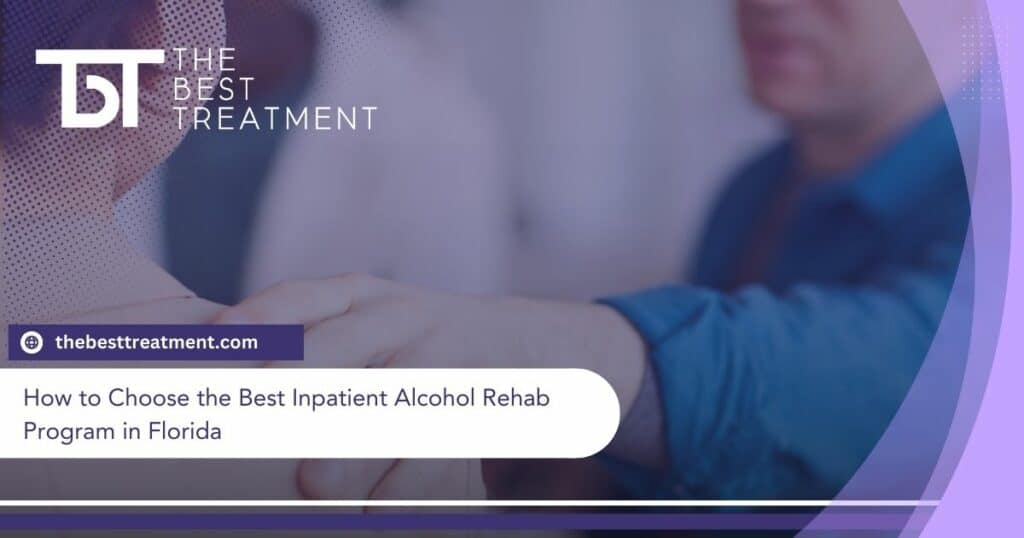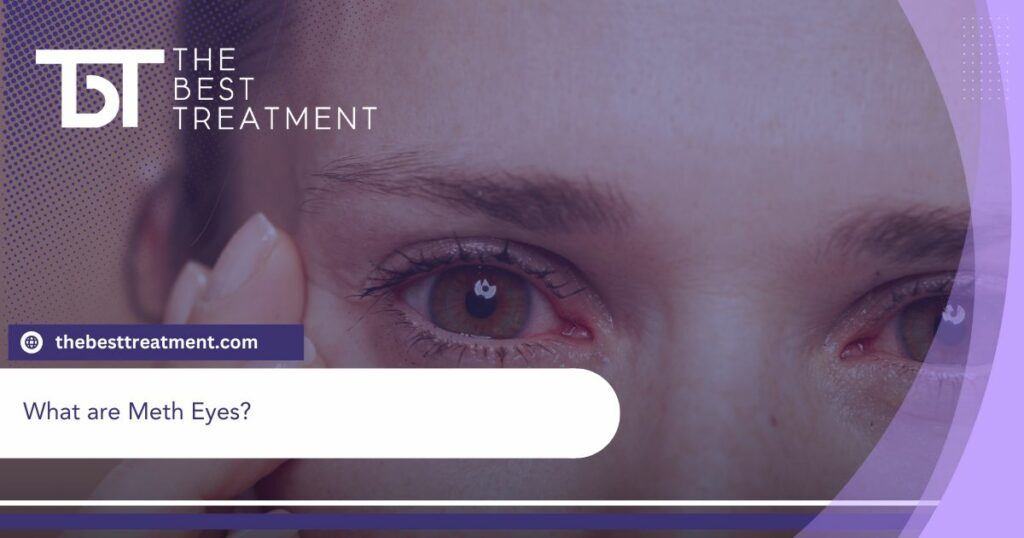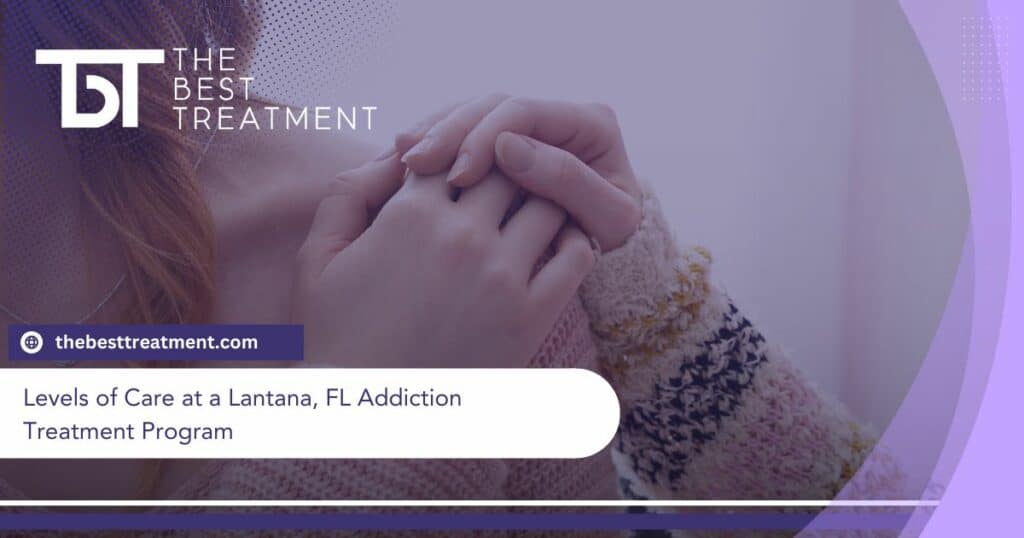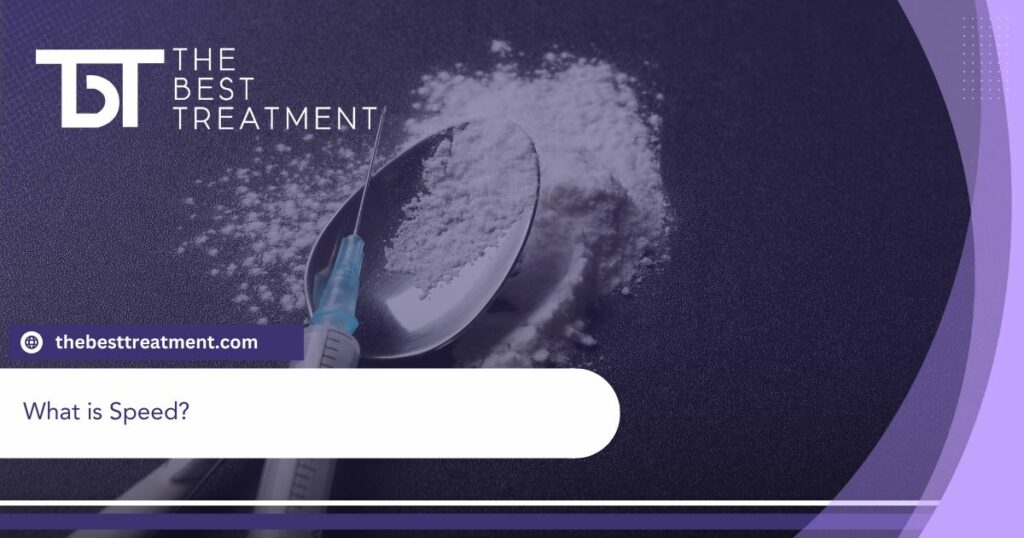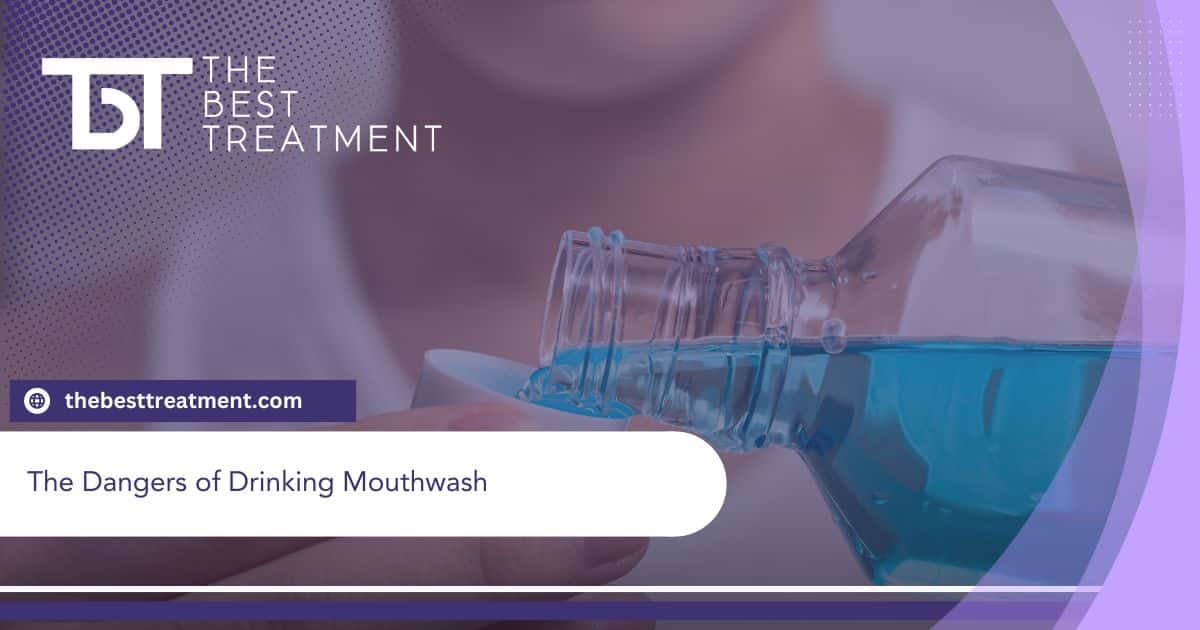Table of Contents
Many commercial brands of mouthwash contain alcohol. The alcohol in mouthwash can help eliminate bacteria in the mouth that cause bad breath. Using mouthwash can be a beneficial step in your oral hygiene routine.
However, in some cases, people may drink mouthwash to get drunk. Drinking mouthwash is very dangerous. Mouthwash often has a high alcohol percentage. It also typically contains other chemicals that can be harmful when swallowed.
People may drink mouthwash because it is less expensive or more accessible than other types of alcohol.
Drinking mouthwash may be a sign of alcoholism. This article will explore the risks of consuming mouthwash. You will also learn other signs of alcohol addiction and where to find treatment.
Reach out to The Best Treatment staff to learn about our supportive addiction treatment programs. Our intake specialists will verify your insurance, answer questions, and help you schedule an intake evaluation.
Can You Get Drunk From Drinking Mouthwash?
Alcohol is one of the active ingredients in many types of mouthwash. Listerine is one of the top-selling brands of mouthwash in the United States. It contains almost 27% alcohol (54-proof). This means it contains more alcohol than most beer, wine, and some distilled spirits.
Mouthwash contains denatured alcohol. This means that manufacturers have added other chemicals to it. The chemicals make the alcohol taste terrible but do not affect how it affects people.
If people drink a mouthwash containing alcohol, they will become intoxicated.
Why Would Someone Drink Mouthwash?
Surveys suggest that between 10-15% of people in alcohol detox facilities have consumed mouthwash or other non-beverage alcohol. About half of these admit to regular non-beverage alcohol use.
People may drink mouthwash for many reasons, including:
- Easy access
- Lower cost than standard alcoholic drinks
- High alcohol content
- There are no age restrictions for purchasing it
- Easier to hide intoxication because of minty, fresh breath
- Unable to buy alcohol because of intoxication
People struggling with alcohol addiction may drink mouthwash because it is high in alcohol and very inexpensive.
What are the Effects of Mouthwash Intoxication?
The alcohol in mouthwash affects people in the same way as other forms of alcoholic beverages. Signs of alcohol intoxication include:
- Slurred speech
- Flushed face and skin
- Mood swings
- Dry mouth
- Fast or excessive talking
- Aggression
- Staggering or swaying
- Nausea and vomiting
However, mouthwash contains other chemicals. These chemicals can be extremely harmful to the body.
Is Drinking Mouthwash Dangerous?
Drinking mouthwash is very dangerous. There are many ingredients in mouthwash that can damage the body. Here are some of the chemicals in mouthwash and how they can affect your body.
Chlorhexidine gluconate
Consuming chlorhexidine gluconate may damage the cardiovascular system and raise blood pressure. This chemical also kills beneficial bacteria in the body.
Hydrogen peroxide
Hydrogen peroxide can irritate the lining of the stomach and gastrointestinal tract. It can cause an upset stomach, nausea, vomiting, and diarrhea.
Methyl salicylate
Methyl salicylate is another name for menthol. Menthol gives mouthwash a minty flavor. Ingesting methyl salicylate can trigger rapid-onset salicylate poisoning.
Drinking large quantities of mouthwash that contains this chemical can cause:
- Seizures
- Low blood pressure
- Swelling in the brain
- Cardiac arrest
- Ringing in the ears
- Nausea
- Abdominal pain
It is unsafe to drink mouthwash. Drinking mouthwash may lead to severe complications. It may also be a sign of alcohol use disorder (AUD).
Recognizing Mouthwash Overdose
People who drink mouthwash are at risk for life-threatening complications. Any amount of mouthwash is dangerous. High amounts of alcohol can lead to alcohol poisoning. The other chemicals mouthwash contains may lead to other life-threatening problems, including organ failure and cardiac arrest.
It is also possible to overdose on mouthwash. Here are some of the signs of a mouthwash overdose:
- Belly pain
- Diarrhea
- Drowsiness
- Headache
- Low blood pressure
- Nausea
- Rapid heart rate
- Shallow, fast breathing
- Red, painful skin
- Slow breathing
- Coma
- Low body temperature
- Pain in the throat
- Loss of consciousness
- Loss of coordination
- No reflex response
- Changes in urination
- Vomiting
- Blood in vomit
A mouthwash overdose is a life-threatening event. If you or someone near you is experiencing an overdose of mouthwash, call 911 immediately. Wait with the person until EMS arrives.
Drinking mouthwash may be a sign that someone is struggling with alcohol addiction. Addiction is a complex condition that requires comprehensive treatment.
Alcohol addiction will get worse if you do not get help. Drinking heavily changes how your body and brain work. These changes can make it almost impossible to quit drinking when you choose.
Find professional treatment that can help you overcome alcohol addiction and move forward. Get help as soon as you recognize a problem.
Find Treatment for AUD
Living with an untreated AUD can be incredibly challenging. Alcohol abuse and addiction can damage your health and emotional well-being. It can harm your relationships and steal memories.
Don’t wait for another day to get help. Contact the caring specialists at The Best Treatment now to explore our alcohol rehab programs.
Take the first step of your recovery journey by contacting us today.
Medically Reviewed: September 25, 2019

All of the information on this page has been reviewed and verified by a certified addiction professional.






